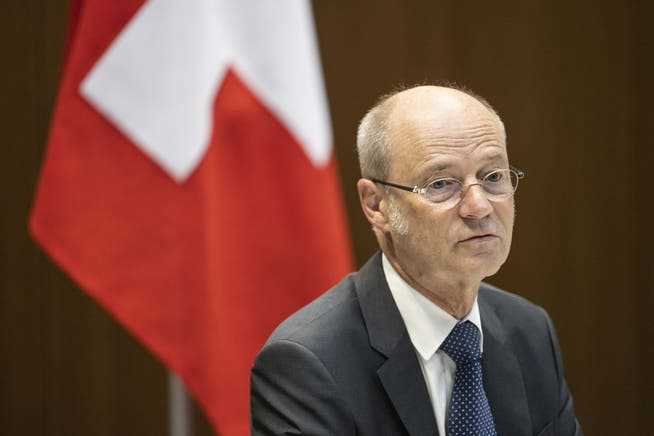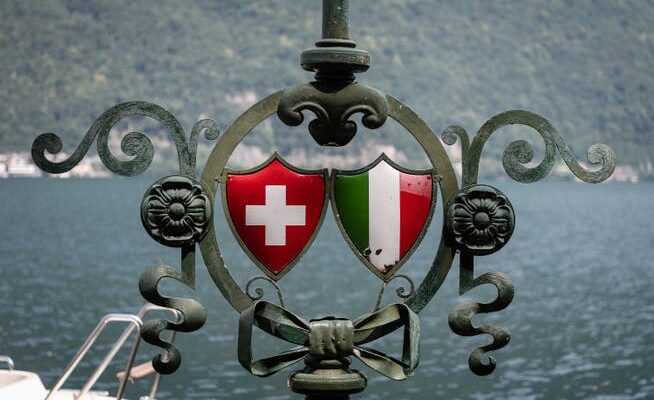“They are doing well in Switzerland”: This is what an Italian mafioso says about the situation of ‘Ndrangheta members in our country. Fedpol and the federal prosecutor fear that Switzerland could become a hub for the mafia.
The joint attack against the mafia last November shows that cooperation with Italy is already working well.
The Italian police struck in several regions last November: they arrested over a hundred suspects suspected of being associated with the Calabrian mafia organization ‘Ndrangheta and seized cocaine.
But the coup is not limited to Italy: at the same time, several people are arrested in Switzerland. 180 police officers from several police corps and the Federal Office of Police (Fedpol) are involved in the campaign. Switzerland’s and Italy’s tactics are closely coordinated – and wiretapping logs released by Italian police show why this is necessary.
“They are doing well in Switzerland”
You can hear a group of men chatting seemingly casually. One of the men whom the police assigned to the ‘Ndrangheta touts the virtues of Switzerland as the perfect logistical base for organized crime to his colleagues. The Calabrian ‘Ndrangheta is currently considered the most dangerous mafia organization in Italy.
The man says his cousins came to Switzerland with practically no money and now own an Audi RS3 and other luxury cars. “They are doing well in Switzerland,” he says – in contrast to his homeland: “They ruined us in Italy.” – “Are you joking?” asks one of the group, alluding to the apparently loose rules of the game on the other side of the Alps. “No,” replies the first. “The 416 bis does not exist in Switzerland.”
Article 416 bis is the Mafia provision in the Italian penal code. It provides for sentences of 15 to 26 years just for membership in a mafia-like and armed organization. Far over 7000 people are now in Italy due to Article 416 bis imprisoned.
Switzerland tightens law for criminal organizations
The Italian authorities have been warning for some time that the mafia is increasingly spreading to Switzerland and intensifying its activities here. But the fight against organized crime had lost a lot of priority in the public consciousness in recent years, as terrorism was in the foreground. Now there is a lot of catching up to do, say the Swiss law enforcement authorities.
For example, Switzerland recently tightened its penal code for criminal organizations. Since the middle of last year, prison sentences of up to 20 years have been provided for involvement in a criminal organization. But it will probably be months, if not years, before a conviction is passed under the new law.
Besides, strict laws are only one thing. In recent years, it has proved difficult to provide evidence of a mafia organization in court. Without information from other countries, the Swiss authorities have no chance, explained the new federal prosecutor, Stefan Blättler.

Makes the fight against organized crime a priority: federal prosecutor Stefan Blättler.
Federal prosecutor declares fight against mafia to be the focus
The joint attack against the mafia last November shows that cooperation with Italy is already working well. But according to Blättler, it must be deepened. For this reason, his first trips abroad took him to Milan and Rome at the beginning of the year. At the highest level, he explored how cooperation could be expanded. Blättler has declared the fight against the criminal organization to be one of his priorities.
Fedpol has also given the fight against the mafia top priority for some time. Last but not least, it seems worrying that Switzerland no longer serves as a mere retreat and hiding place. According to Fedpol, the suspected members of the ‘Ndrangheta arrested in Switzerland in November were selling or storing mafia drugs here. This emerges from the annual report published by Fedpol on Monday.
Those arrested were by no means no-names, but “prominent heads of the ‘Ndrangheta”. According to Fedpol, the people were subordinate to the top management. Such findings are consistent with statements by experts.
A former federal prosecutor recently told Blick that the Mafiosi are increasingly nesting in Switzerland and infiltrating the economy. This is in contrast to before, when they would only have brought the money into the country. The authorities do not know whether the mafia is really undermining the Swiss economy. But because organized crime is under pressure in Italy, the Fedpol fears a move to the neighboring country. Fedpol boss Nicoletta della Valle warned various media last autumn of a “hub” that could arise in Switzerland.
The beginnings of the mafia in Switzerland go back to the 1960s and 1970s, when many seasonal workers immigrated. The ‘Ndrangheta, which is heavily biased towards blood ties and local origin in relation to its members, used migration to set up Calabrian-style structures abroad. At least that’s how the Fedpol puts it.
Scattered all over Switzerland
Money laundering first became an issue in Switzerland in the 1980s in connection with the so-called Pizza Connection process in the USA. In the years that followed, there were many investigations in this country in connection with mafia contacts. At the same time, the fight against organized crime in Switzerland became the dominant political issue. Switzerland began to massively expand its legislation.
The judiciary thus had completely new means at its disposal. But it wasn’t until the 2010s that it became clear that Switzerland might play a more significant role for mafia organizations: in 2014, the Italian authorities released a video showing a ‘Ndrangheta cell from Frauenfeld in a pub at a meeting. The images became symbols of a country that grossly underestimated the risk of criminal organizations. The cell is said to have existed since the 1970s.
16 alleged members of the criminal organization were arrested and extradited to Italy, but acquittal after acquittal followed: the Italian judiciary lacked evidence. The verdicts showed once again how difficult it is for the judiciary to fight organized crime. It was successful in 2018 in Bellinzona: the Federal Criminal Court found a leading member of a ‘Ndrangheta clan who lived in Bern guilty. And two years later, there was another police action in several cantons, during which six people were arrested – the outcome is still open.
Today, the Fedpol names more than three dozen places in Switzerland where the various organizations of the Italian mafia are said to be present. In addition to the Calabrian ‘Ndrangheta, it mentions the Neapolitan Camorra, the Sicilian Cosa Nostra and the Apulian Sacra Corona Unita.
Whether it is the sharpened view that has led to more intensive investigations, or whether the mafia has really become more active – that is ultimately difficult to assess. However, Switzerland must be aware that Mafia-like machinations exist in this country, says Fedpol: “You only find what you are looking for. And you only look for what you know.”
